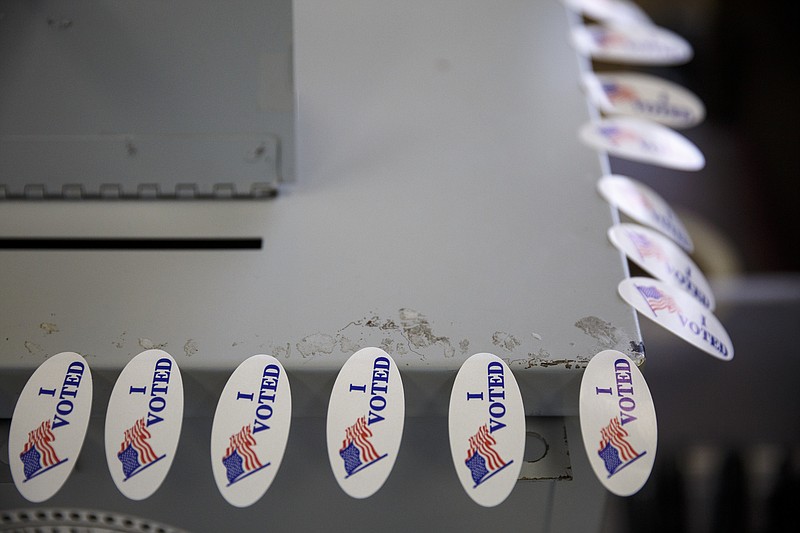When President Lyndon Johnson signed the Voting Rights Act of 1965 a half-century ago, a year after passage of the Civil Rights Act of 1964, their combined reforms made the last phrase of the Pledge of Allegiance - "with liberty and justice for all" - a reality for black Americans. Together, they undermined the Jim Crow system that for generations had denied black Americans, most of them in the South, the same rights as whites.
It is nearly impossible to overstate the importance of the 1964 act as playing a crucial role in ending racial segregation in public accommodations, including restaurants, hotels, commercial transportation - even restrooms and water fountains. But it was the Voting Rights Act that overturned laws that for years had prevented mostly Southern blacks full citizenship through access to the voting booth.
One phrase still defines that practice: political evil. But in this election especially, those seeking to undermine some groups' right to vote are choosing more updated efforts. Not for them the often violent tactics (in Selma, for example) used against blacks seeking the right to vote - and thus the realization full citizenship.
The current weapon of choice: voter ID laws based on the false premise that they prevent in-person voter fraud. They use more "sophisticated" measures intended to make voter registration more difficult, which often results in denying it altogether. (Let's call them "James Crow" laws.)
And so, 50 years after the voting rights law, William Faulkner's observation is newly relevant: "The past is not dead. In fact, it's not even past."
A recent Gallup poll found that 36 percent of Americans believe voter fraud is a "major problem."
There's a problem, all right, but it involves practices targeting those considered likely to support Democratic candidates. These include restrictions on the type of identification to qualify for ballots, disallowing student IDs for student voting, and reducing the number of days for early voting. It seems clear their intent is to make it more difficult for certain Americans to vote, mostly low-income blacks and Latinos.
Claims about election fairness aside, there is evidence that the intent of many voter ID laws is to suppress participation by Democratic voters. Jamelle Bouie, writing in The Daily Beast, cited a recent WorldNetDaily commentary by longtime conservative Phyllis Schlafly.
Defending the voter ID laws, Schlafly argued that early voting "violates the spirit of the Constitution," whatever that means, and facilitates "illegal votes" that "cancel out the votes of honest Americans." She didn't define "illegal votes" but her obvious intent was to buttress the spurious claim that voter ID laws prevent in-person voter fraud.
An investigation by Justin Levitt, a Loyola Law School professor, however, found a mere 31 incidents of in-person voter fraud between 2000 and 2014 - out of more than one billion votes cast nationwide. Indeed, studies of voter fraud have found that absentee ballots are more vulnerable to fraudulent manipulation than in-person voting.
Power often gives birth to abuse, which explains in part federal court rulings that in one day struck down voter ID laws in four states, including my home state of North Carolina. A federal appeals court came down hard on the Tar Heel state's law in June, noting acidly that legislators had targeted African-American voters "with almost surgical precision." And in Wisconsin, a federal judge who found the state had unfairly targeted minority voters said the state's voter ID law "is a cure worse than the disease."
A better cure would be a more faithful adherence to "liberty and justice" in the politically sacred rite of voting.
Michael Loftin is former editorial page editor of The Chattanooga Times.
